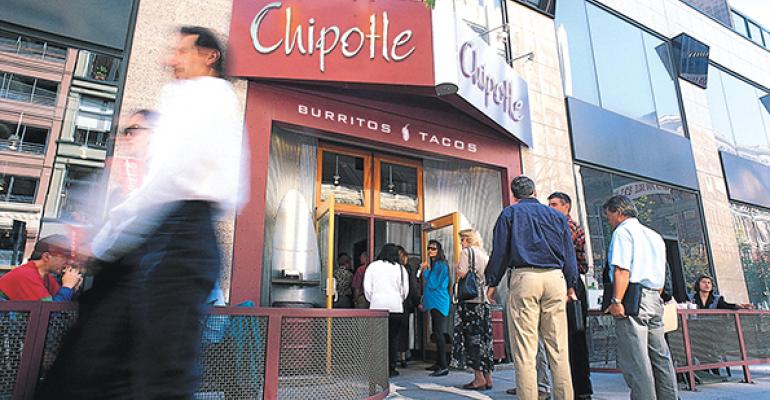 This post is part of the On the Margin blog.
This post is part of the On the Margin blog.
Chipotle Mexican Grill Inc. is working to recover from what founder Steve Ells called the worst year in company history.
A proposed 20-percent tariff on goods from Mexico could make that recovery much harder.
The Trump administration and Congress are apparently considering a 20-percent tariff on goods made in Mexico to pay for a border wall Donald Trump promised during his presidential election campaign.
Analysts say Chipotle has the most to lose in such a scenario, thanks to its guacamole. The Denver-based burrito chain imports a number of its produce items from south of the border.
Instinet analyst Mark Kalinowski estimated that Chipotle gets 70 percent to 90 percent of its avocados from Mexico, as well as “the majority of its jalapenos, less than half of its tomatoes and small amounts of other items.”
“In other words, should a 20 percent tariff be enacted for goods imported from Mexico, Chipotle likely would bear the biggest brunt of this potential impact on food costs compared to the other companies we cover,” Kalinowski wrote this week.
The cost could be considerable.
Maxim Group analyst Stephen Anderson estimated that a 20-percent tariff on the current avocado price would lower earnings per share by 14 cents.
Higher tomato costs would hurt EPS by 7 cents to 10 cents. Combine them, and that’s an impact of about 24 cents per share. For now, Anderson wrote in a note this week, he is not modeling the potential impact of a tariff, but said that “this may place an additional barrier to” Chipotle’s earnings recovery.
Anderson said the potential for higher food costs in 2017 could “amplify concerns about labor costs.”
Same-store sales are expected to recover this year from the double-digit declines that marked much of 2016. That should improve profit margins.
Yet labor costs are expected to increase 5 percent to 6 percent, Anderson wrote. In addition, he said that 25 percent of the company’s restaurants are in states and municipalities where wages are on pace to increase to $15 an hour in the next three years.
To be sure, Chipotle could theoretically offset higher produce prices by raising menu prices, or it could find a different supplier. It also remains to be seen whether Congress and the administration will actually go through with a tariff.
Still, the higher labor costs, and the potential for higher food costs, would both offset the higher margins that should come from improving sales.
Jonathan Maze, Nation’s Restaurant News senior financial editor, does not directly own stock or interest in a restaurant company.
Contact Jonathan Maze at [email protected]
Follow him on Twitter: @jonathanmaze





